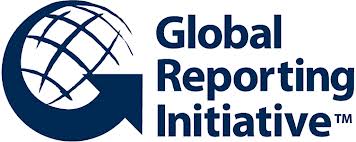 The Global Reporting Initiative (GRI) and the Reporting and Assurance Frameworks Initiative (RAFI) have signed a Memorandum of Understanding (MoU) to underline their mutual commitment to advancing meaningful corporate human rights reporting.
The Global Reporting Initiative (GRI) and the Reporting and Assurance Frameworks Initiative (RAFI) have signed a Memorandum of Understanding (MoU) to underline their mutual commitment to advancing meaningful corporate human rights reporting.
Both GRI and RAFI believe that robust human rights reporting is a key means of embedding respect for human rights into business practices, as called for by the UN Guiding Principles on Business and Human Rights (UNGPs).
The UN Guiding Principles on Business and Human Rights, unanimously endorsed by the UN Human Rights Council in June 2011, establish the authoritative global standard on the respective roles of business and governments for ensuring business respect for human rights. Many businesses around the world are now looking at how they can implement the Guiding Principles in their operations.
The GRI Sustainability Reporting Guidelines are the most widely used and comprehensive instrument for human rights reporting. Human rights disclosure has been embedded in the Guidelines since the G3.1 version was released in 2011, and G4, the fourth generation of the Guidelines, includes key elements of the UNGPs.
RAFI is a recently launched initiative focused on the development of public, non-proprietary frameworks to guide companies in reporting on their implementation of the UNGPs, and to guide assurance providers on the assurance of those reports. The project is based on an open and multi-stakeholder consultative process, overseen by an Eminent Persons Group and facilitated by a project team comprised of Shift, Mazars, and the Human Rights Resource Centre for ASEAN.
The MoU between GRI and RAFI reflects their joint commitment to identify opportunities for the language of the reporting and assurance frameworks to dovetail with the GRI Sustainability Reporting Guidelines. This should ensure that GRI and RAFI together provide companies with a clear roadmap on how best to report on the implementation of the UNGPs.
GRI Deputy Chief Executive Teresa Fogelberg said: “I am delighted to announce this close collaboration between GRI and RAFI. The large GRI network, which includes thousands of reporting companies globally, represents a huge opportunity to drive improvements in human rights implementation across the world through communicating and reporting on human rights performance and their implementation of the UNGPs. The reporting practice built by these thousands of companies is a hugely valuable resource, which can be leveraged to measure and manage human rights impact and to scale up the contribution business makes globally to improving human rights standards.”
Caroline Rees, President of Shift and speaking on behalf of the RAFI project team, said: “This MoU is an important development for RAFI and we are greatly looking forward to collaborating with GRI. While the reporting framework developed through RAFI should give necessary additional guidance on what good human rights reporting looks like, it is important that it should both learn from and dovetail with GRI’s G4 guidance to the greatest extent possible. This consideration will be an important part of RAFI’s on-going consultations with stakeholders.”
For more information on GRI see: www.globalreporting.org
